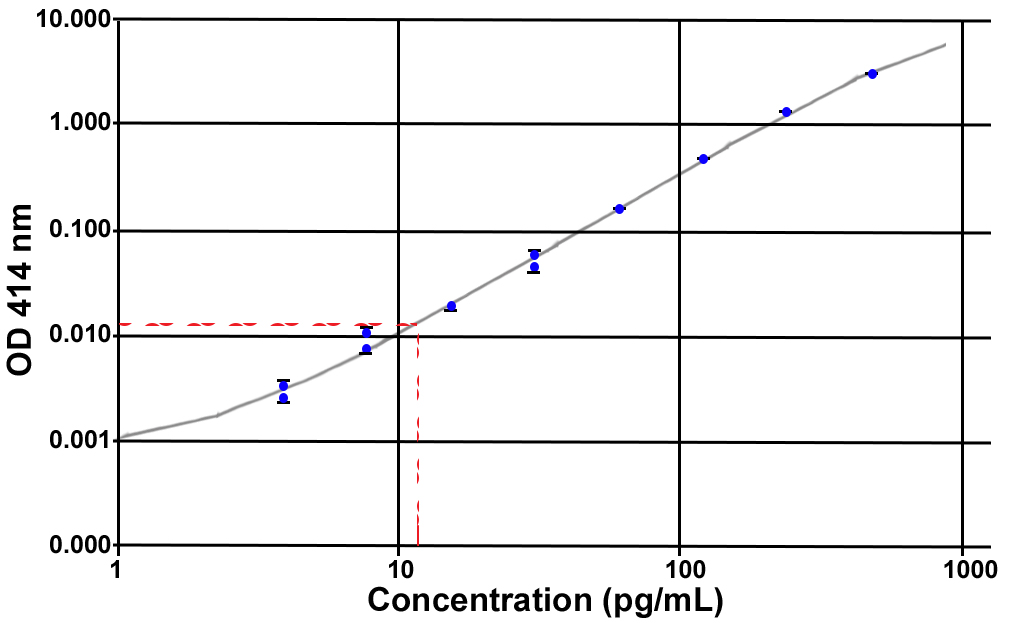Territorial Availability: Available worldwide directly through Bertin or your local distributor
Technical Warning: Check the Additional Items Required section of this kit booklet to verify if UltraPure Water (Milli-Q or equivalent) is needed for this assay
- Synonyms
- Acylated Ghrelin (pig) EIA kit
- Octanoyl Ghrelin
- Correlated keywords
- ELISA
- spi-bio
- acylated
- immunoassays
- obesity
- growth
- hormones
- homeostasis
- ligands
- secretagogue
- A05106
- receptors
- stomach
- hypothalmic
- spi-bio
- spibio
- adipokines
- octanoyl
- des-octanoyl
- des octanoyl
- pig
- porcine
- diabesity
- Product Overview:
Enzyme ImmunoAssay (EIA) is a technique to detect and quantify antigens (proteins, hormones…) or antibodies in samples. It relies on the ability of an antibody to bind a specific antigen. Either the antibody or the antigen is labelled with an enzyme whose substrate is a chromogen or a fluorogen converted in a measurable product (color or fluorescence).|Enzyme-linked Immunosorbent Assay (ELISA) is a type of EIA using a solid phase (ex: microtiter plate) coated with an antigen immobilizing the molecule to detect. Over the time, scientists have extended the term ELISA to EIAs using an antibody coating the solid phase. That explains why our EIA kits using coated antibodies are also called ELISA kits.|Bertin Bioreagent’s expertise is to develop analytical tools for biomarkers. As such, in 2004, Bertin Bioreagent launched its first Ghrelin Biomarker assay kits, under the SPI-Bio brand name, as a result of its state-of-the-art R&D research teams. Bertin Bioreagent was the first company providing bioanalytical tools to assay Acylated and Non-acylated Ghrelin with very high sensitivity.|Ghrelin discovered in 1999, is fast becoming an endocrinology target of the millennium. Ghrelin, identified in rat stomach as an endogenous ligand for the GH secretagogue receptor, is mainly produced in stomach, but has been demonstrated in many other organs. In addition to GH-releasing properties and its orexant action, ghrelin could act as an hormone having effects on gastric motility (similarity with the peptide hormone motilin), acidic secretion, cardiovascular action, antiproliferative effects, pancreatic and glucose metabolism function, sleep… Ghrelin gene raises to mRNA prepro-ghrelin of 117 amino acids. This precursor is processed into ghrelin, 28 amino acids (human). Before being secreted, this peptide is octanoylated at Ser 3. This step is essential for biological activity. If the endogenous peptide appears directly related to feeding behaviour, the potential therapeutic importance of this hormone is not restricted to a regulator of food intake but also may be involved osteoporosis somatopaus, infertility and ovulation induction, and some cardiovascular diseases.





